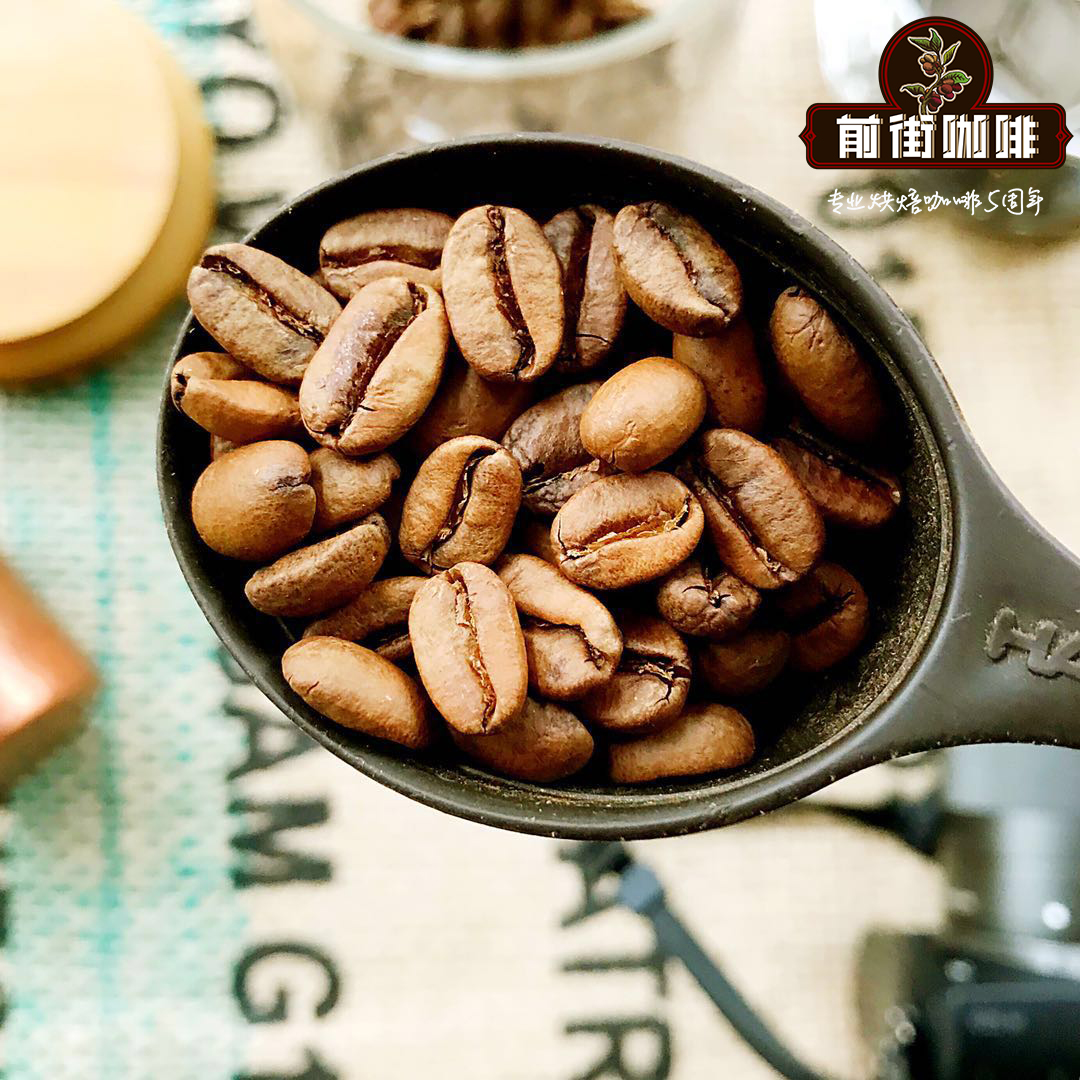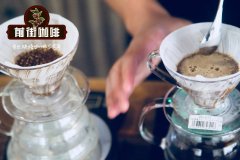Coffee beans grown in Pu'er District, Yunnan Province, China? Is it good?
Coffee beans grown in Pu'er District, Yunnan Province, China? Is it good?

Coffee producing areas, at present, Yunnan coffee producing areas are mainly distributed in Simao, Banna, Wenshan, Baoshan and Dehong in the south and southwest of Yunnan.
Huangsheng Coffee Company imports Yunnan coffee mainly in Pu'er. Pu'er is a small town in Simao and the hometown of Pu'er tea. It is famous for Pu'er tea because of its lush mountains and white clouds. It is somewhat surprising that coffee beans are also grown in this tea village. Most of the coffee farms operated in this area are small farms in 300-700 mu, mainly producing Arabica coffee beans. The Tropic of Cancer just crosses the territory of Simao, in line with the basic conditions for coffee cultivation, where the climate is pleasant, which belongs to the low-latitude plateau and south subtropical monsoon climate zone, with the characteristics of low latitude, high temperature, rainy and quiet wind, no severe cold in winter, no hot summer, four seasons like spring, the average temperature is 19 ℃, the planting altitude is between 900-1300 meters, and the average annual rainfall is 1500 mm. There are congenital conditions for the production of high quality coffee beans.
Before large-scale cultivation, it is not easy for people in Yunnan to drink a cup of coffee. To stir-fry coffee, you must first mash the parchment layer with a stone pestle, then stir-fry the coffee beans by hand in an iron pan, and then grind the coffee into powder. It is very troublesome to drink a cup of coffee, and it is difficult to grasp the taste of coffee, so local people are not in the habit of drinking coffee. so far, it is quite easy to have a cup of Pu'er tea in Pu'er City, which is available everywhere, but it is very difficult to find a place for a cup of coffee. You can't find a coffee shop on Pu'er Street, or even a coffee roaster in Simao City or Kunming.
I have visited several local coffee farms in Yunnan to observe the patterns of planting and handling coffee beans in these farms. Their main planting and processing techniques and experience come from some international coffee companies. These international coffee companies buy a large number of raw coffee beans in Yunnan producing areas, set up coffee agricultural experimental farms, teach local farmers to grow and deal with coffee beans, and mainly introduce Colombian treatment methods. From washing beans, fermenting beans, drying beans are similar to the Colombian model. Most of these international coffee companies are the major producers of coffee powder and instant coffee in the world, and they have reasonable requirements for the quality of coffee beans, mainly for quantity; therefore, the requirements for bean shape and defects in coffee quality are not strict. Therefore, local coffee farmers grow and produce processed coffee in this direction. In terms of planting and treatment mode, there are often some problems.
We tried to find some farms in Yunnan producing areas that could produce high-quality coffee, and communicated with some coffee farm owners technically, and selected one of some farms to cooperate with our processing technology. We made some discussions and requirements to improve the quality of coffee beans. In this process, we also thank the farm owners for their cooperation, and they also improve the quality. Everyone worked hard to get good results and get the quality of Yunnan boutique coffee beans this time.
Yunnan coffee generally uses washing mode to treat coffee beans. In the early days, Colombian-style treatment mode was introduced by some large factories. Washing beans and drying beans were all Colombian models. Coffee fruits were first mechanically removed from the peel and flesh through the endodermis. The fermentation tank fermented for 24 hours, and then washed the coffee beans with water to remove the sticky pulp. At the same time, the bad beans were separated by the buoyancy of water. So far, the processing of coffee is close to the standard of foreign coffee countries.
However, in the latter part of the treatment, local farm owners use some rice processors to improve the treatment of coffee beans, because there is a great difference between rice and coffee beans, so some coffee beans are often treated, resulting in a high rate of damage. When we entered the producing areas, we had some discussions with local coffee farmers, but as most of the farms were small-scale operations and insufficient funds, we found a more economical and effective way to cooperate with them, but in order to meet the quality requirements, a lot of manual treatment was used to achieve the goal.
Although the imported Yunnan coffee beans produced by Huangsheng Company have not met the most satisfactory requirements of our company during the whole process of close supervision, it is a rare quality that they have never obtained for local farms. Even the farms themselves are very satisfied with this result. This is a very good experience. If they can upgrade and replace the processing machinery and equipment, they will certainly be able to achieve a better and stable quality. they do not have to spend a lot of manpower and procedures to achieve such a standard because of the quality required by us this time.
Yunnan coffee is located in the famous tea area of Zhipu'er in China because of its geographical environment, the coffee garden is not far from the tea garden, the coffee has a little tea flavor, but it still retains the characteristics of Asian beans, chocolate flavor is obvious, the taste is rich and full, smooth, the acidity is quite soft and moderate, and the sweetness is high. Although it is washed beans, it also has some natural wild nature of unwashed beans. On the whole, it is a satisfactory and pleasant coffee bean.
Important Notice :
前街咖啡 FrontStreet Coffee has moved to new addredd:
FrontStreet Coffee Address: 315,Donghua East Road,GuangZhou
Tel:020 38364473
- Prev

Yemeni mocha coffee history, culture, characteristics, industry development
Yemeni coffee, a well-known coffee named after a port in Yemen. The most familiar mocha coffee. When the word appears on the recipes of bags and cafes, the meaning is different. The former refers to the port where coffee beans are exported, while the latter refers to a kind of coffee. Strictly speaking, coffee beans exported from the port of Mocha in Yemen can be called mocha coffee. Later, the port
- Next

Coffee growers in Yunnan are in trouble? Is Yunnan small seed coffee good?
Coffee growers in Yunnan are in trouble? Is Yunnan small seed coffee good? The western and southern parts of Yunnan Province are located between latitude 15 and Tropic of Cancer. Most areas are 1000-2000 meters above sea level. The topography is dominated by mountains and slopes, with large undulation, fertile soil, sufficient sunshine, rich rainfall and large temperature difference between day and night. These unique natural conditions have formed the taste of Yunnan small-grain coffee.
Related
- Detailed explanation of Jadeite planting Land in Panamanian Jadeite Manor introduction to the grading system of Jadeite competitive bidding, Red bid, Green bid and Rose Summer
- Story of Coffee planting in Brenka region of Costa Rica Stonehenge Manor anaerobic heavy honey treatment of flavor mouth
- What's on the barrel of Blue Mountain Coffee beans?
- Can American coffee also pull flowers? How to use hot American style to pull out a good-looking pattern?
- Can you make a cold extract with coffee beans? What is the right proportion for cold-extracted coffee formula?
- Indonesian PWN Gold Mandrine Coffee Origin Features Flavor How to Chong? Mandolin coffee is American.
- A brief introduction to the flavor characteristics of Brazilian yellow bourbon coffee beans
- What is the effect of different water quality on the flavor of cold-extracted coffee? What kind of water is best for brewing coffee?
- Why do you think of Rose Summer whenever you mention Panamanian coffee?
- Introduction to the characteristics of authentic blue mountain coffee bean producing areas? What is the CIB Coffee Authority in Jamaica?

